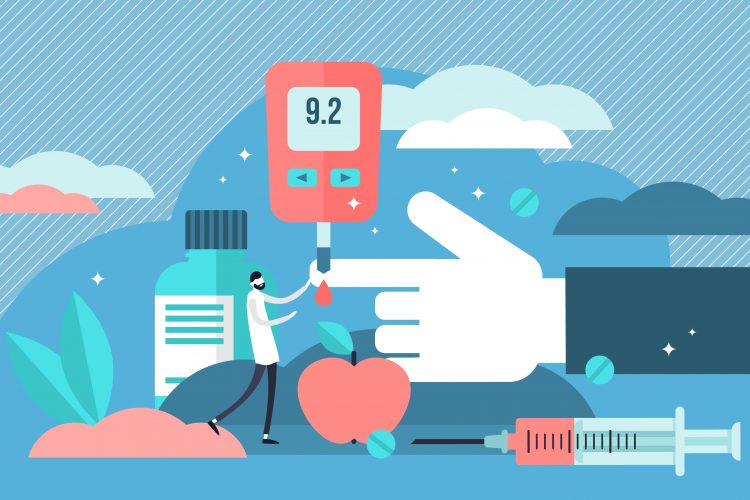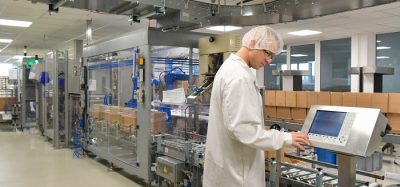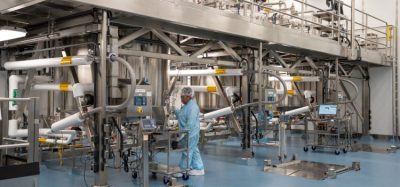Artificial pancreas for type 1 diabetes control given nod by FDA
Posted: 27 August 2020 | Hannah Balfour (European Pharmaceutical Review) | No comments yet
The all-in-one, Control-IQ system controlled the blood glucose levels of children aged six and over more successfully than standard technologies in a clinical trials.


A clinical trial at four paediatric diabetes centres in the US has found that a new artificial pancreas system — which automatically monitors and regulates blood glucose levels — is safe and effective at managing blood glucose levels in children as young as age six with type 1 diabetes.
“Fewer than one in five children with type 1 diabetes are able to successfully keep their blood glucose in a healthy range with current treatment, which may have serious consequences on their long-term health and quality of life,” said Dr Guillermo Arreaza-Rubín, director of the US National Institute of Diabetes and Digestive and Kidney Diseases (NIDDK)’s Diabetes Technology Program and project scientist for the study. “Earlier research showed that the system tested in this study was safe and effective for people ages 14 and older. This trial now shows us this system works in a real-world setting with younger children.”
The artificial pancreas, also known as closed-loop control, is an “all-in-one” diabetes management system that tracks blood glucose levels using a continuous glucose monitor (CGM) and automatically delivers insulin when it is required using an insulin pump. The system is designed to replace reliance on testing glucose levels using fingerstick or CGM with delivery of insulin by multiple daily injections or a pump controlled by the patient or caregiver.
The study enrolled 101 children aged six to 13 and assigned them to either the experimental group, where they used the artificial pancreas system, or to the control group which used a standard CGM and separate insulin pump. Check-ins and data collection were conducted every other week for four months.
Study participants were instructed to continue about their daily lives so that the researchers could best understand how the system works in the typical routines of the children.
The study found that the novel system had 7 percent improvement in keeping blood glucose in range during the daytime and a 26 percent improvement in night-time control compared to the control group. The latter is particularly important for Type 1 diabetes sufferers, because severe, unchecked hypoglycaemia can lead to seizure, coma or death. Overall, the new system had a nearly 11 percent improvement of time-in-range, which translated to 2.6 more hours per day in which patients were within a normal glucose range.
“The improvement in blood glucose control in this study was impressive, especially during the overnight hours, letting parents and caregivers sleep better at night knowing their children are safer,” said protocol chair Dr Paul Wadwa, professor of paediatrics at the Barbara Davis Center for Childhood Diabetes at the University of Colorado, Aurora (CU), US.
Sixteen minor adverse events occurred in the artificial pancreas group during the study, with most due to problems with the insulin pump equipment. Three events occurred in the control group. No cases of severe hypoglycaemia or diabetic ketoacidosis were reported during the study.
The artificial pancreas technology used in this study, the Control-IQ system, has an insulin pump that is programmed with advanced control algorithms based on a mathematical model using the person’s glucose monitoring information to automatically adjust the insulin dose. The technology was derived from a system originally developed at the University of Virginia (UVA), US.
This four-month study was part of a series of trials conducted in the International Diabetes Closed-Loop (iDCL) Study. Based on data from the iDCL trials, Tandem Diabetes Care has received clearance from the US Food and Drug Administration (FDA) for use of the Control-IQ system in children as young as age six.
“As we continue to search for a cure for type 1 diabetes, making artificial pancreas technology that is safe and effective, such as the technology used in this study, available to children with type 1 diabetes is a major step in improving the quality of life and disease management in these youth,” said NIDDK Director, Dr Griffin Rodgers.
The iDCL Study is one of four major research efforts funded by NIDDK through the Special Statutory Funding Program for type 1 Diabetes to test and refine advanced artificial pancreas systems.
Results from the trial were published in the New England Journal of Medicine.
Related topics
Clinical Trials, Medical Devices, Regulation & Legislation, Technology
Related organisations
Tandem Diabetes Care Inc, University of Colorado Aurora (UC), University of Virginia (UVA), US Food and Drug Administration (FDA), US National Institute of Diabetes and Digestive and Kidney Diseases (NIDDK)
Related people
Dr Griffin Rodgers, Dr Guillermo Arreaza-Rubín, Dr Paul Wadwa









